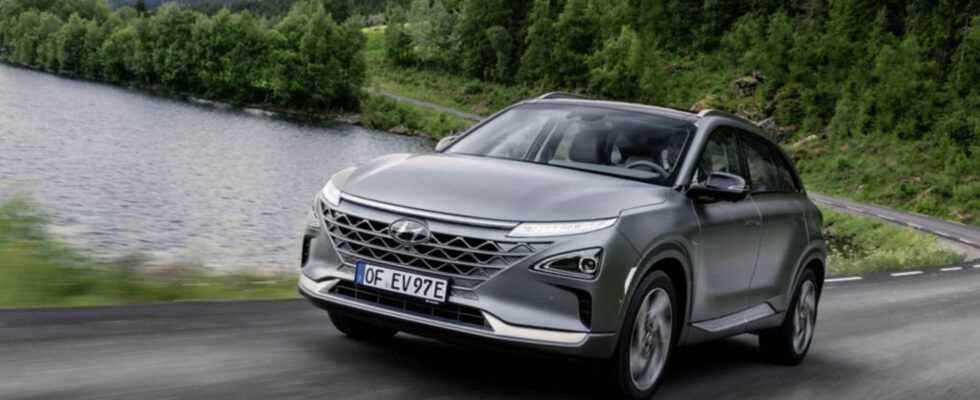Hyundai is one of the only car manufacturers to simultaneously rely on hydrogen vehicles and electric cars to decarbonize its ranges. But hydrogen remains a very expensive and complex technology to implement in this field.
Being one of the few to bet on a technology can be a good or bad sign. Either we have detected a potential that the competitors have not yet seen. Either we bet on the wrong horse. In the case of Hyundai, the cursor is perhaps leaning a little towards this second option. While the overwhelming majority of car manufacturers plan to switch to electric vehicles in the more or less long term, Hyundai is one of the only groups – along with Toyota – to also bet on hydrogen.
However, the builder seems to have difficulty in making his project a reality. As revealed by the media Chosun, Hyundai has put on hold the development of a hydrogen car under its Genesis brand, without specifying when this project could be relaunched.
Hyundai still had great ambitions in this area a few weeks ago. The South Korean, who has already launched an SUV and the first heavy-duty vehicles powered by hydrogen, promised that, by 2030, he would be able to offer fuel cell cars at prices similar to those of electric vehicles. ” The goal is to make hydrogen ready everywhere, for everyone and for all uses. », Assured Euisun Chung, the president of the group. From 2023, the group said, Hyundai’s 3rd generation of fuel cells would offer significant gains in power and compactness. And above all, assured the manufacturer, this generation of battery would be half the price of the previous one by 2025.
A range of 1,000 km with hydrogen
Hyundai’s bet does not come out of nowhere. Hydrogen has specificities that can make it interesting, at a time when carbon emissions must be reduced to zero to fight against global warming. Indeed, its use does not emit greenhouse gases and it is possible to manufacture it using renewable energies (even if at present, hydrogen is very predominantly manufactured via a gas steam reforming process. natural which emits a lot). It is also possible to recharge a hydrogen vehicle faster than an electric car. And its autonomy is more comfortable: the Toyota’s Mirai, for example, got noticed by driving over 1000 km with a single full.
For these reasons, hydrogen presents an interesting potential for transport of heavy goods vehicles, planes or boats: they can, without too much difficulty, carry large volumes. In the passenger car market, however, the potential of hydrogen is much more uncertain. Hyundai is also encountering many technical challenges in this area.
Cost and charging stations: two weak points of hydrogen cars
An internal audit thus revealed that the group was for the moment far from the objectives which it fixed, notes Electrek The cost of hydrogen cars, in particular, does not fall at the hoped rate. Production and sales would also be worse than expected. In South Korea, this type of car does not even represent 0.1% of total sales. The development of the infrastructure needed to recharge these vehicles is also slower than expected. Last problem: the prices of hydrogen are higher than those on which Hyundai had counted.
The article by Korean media Chosun specifies that the South Korean has for the moment suspended the development of its 3rd generation of fuel cell which was to equip the hydrogen cars of the Genesis brand. A decision related to ” technical problems encountered »And the high cost of this equipment. Hyundai reorganized the department that deals with this project last month. It remains to be seen whether these changes will be enough to raise the bar in the group’s hydrogen department. Hyundai, which is also developing in electrics (its Ioniq 5 has conquered us) has undoubtedly done well not to put all its eggs in one basket.
